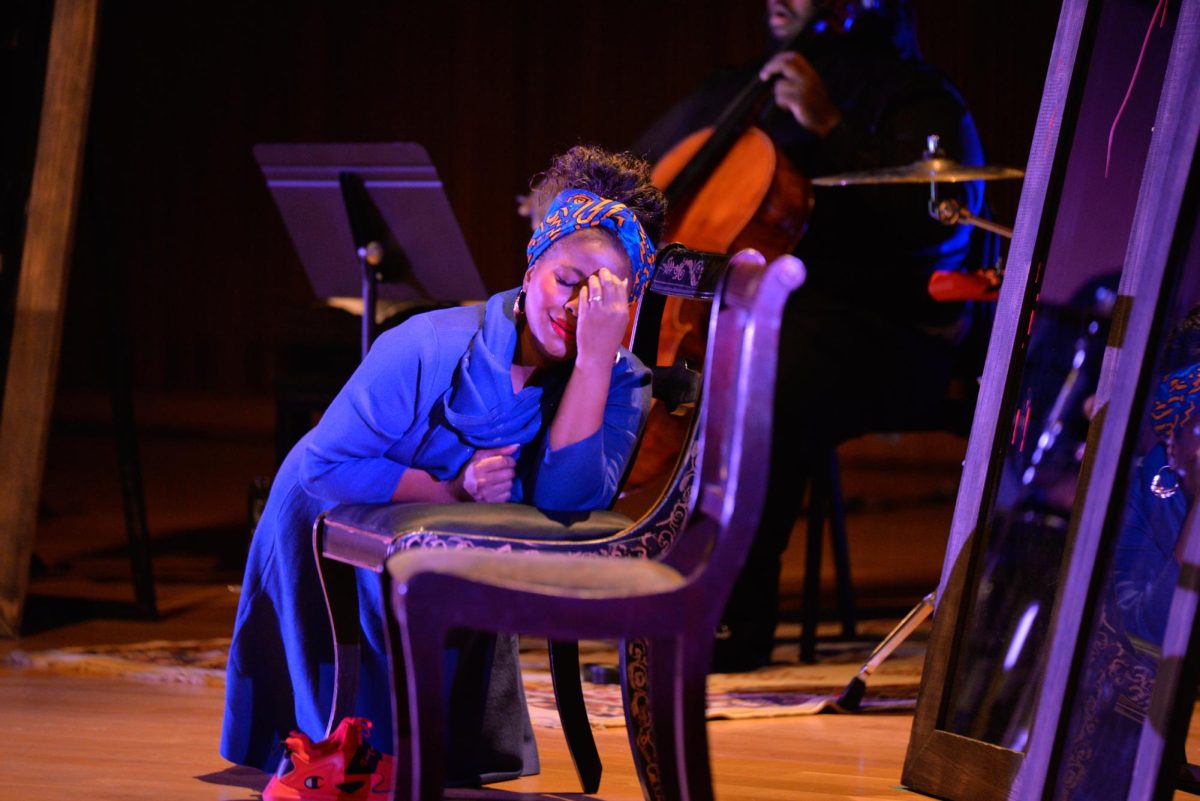On Feb. 17, the Fort Worth Opera presented its rendition of “dwb (driving while black)”, a performance which primarily focuses on a single mother’s fears for her Black son as he reaches driving age.
Susan Kander composed the music in 2018, with a libretto by Roberta Gumble. The Fort Worth Opera’s version was directed by Ayvaunn Penn with soprano Marsha Thompson as the starring role of the mother.
This was my first time going to an opera, and I was genuinely surprised by how much I enjoyed it. My dad, brother and I went together because we enjoyed seeing plays and contemporary dances in New York City.
The opera was held at Texas Christian University’s Van Cliburn Concert Hall, an almost brand new mid century-style venue. Audience members were directed to sit only on the first level to create a more intimate atmosphere. We were in the middle of the hall, sitting five rows from the stage. At a ticket price of only $50, this was well worth attending.
The opera had a small cast, limited only to the soprano Thompson, Cremaine Booker playing cello, and David Verin as percussion. Although Booker and Verin’s titles seem simple, their roles in the opera also include narration and other non-traditional background audio. Paired with intentional mood lighting, the sound effects were a beautiful contrast to Thompson’s voice.
Beginning with the birth of a “beautiful brown boy”, the audience watches him grow up through his mother’s worried eyes. The show follows their life together, touching major milestones like the first day of kindergarten to the first time behind the wheel. This story highlights racial injustices in America happening simultaneously with the milestones, and mentions real Black people who were wrongfully murdered by law enforcement.
The unique choice to have one person act out the entire storyline meant that the audience saw an entire lifetime from a mother’s perspective. Thompson’s vocal range and lung capacity shocked me, as she made the hour of intense singing seem effortless.
She uses five different sets of boys’ shoes in order of size to represent her son at different ages, and five full-body mirrors covered in red dry-erase markers to display her character’s emotional decay.
During her performance, Thompson engaged in one-sided dialogues with different shoes in her palms. These dialogues appeared throughout each phase of the child’s life, and in some instances prompted the mother to recall similar memories from her youth. Building upon the pre-existing score, Thompson used the red markers to write words in scrambled handwriting as a way to illustrate her character’s emotions throughout the piece.
While the opera itself was quite moving, the part of the evening that truly stuck with me was the conversation after the show. The Fort Worth Opera brought out a panel consisting of the creators Susan Kander and Roberta Gumble, the director Ayvaunn Penn and TCU faculty members Dr. Stacie McCormick and Dr. Brandon Manning. Members of the audience were able to stand and share their experiences, ask questions and offer insight. There was a safe space to discuss the true issues faced in this country.
My critiques of the opera remain fairly minor. The performance was done entirely in English, but at times the words were unclear due to the delivery. Beyond that, I simply just wish there was more. With the opera being only one hour long, I was left wanting more of Thompson’s voice, and more exploration of her character.
This work left me thinking about the struggles I face as a colored man about to drive, but also how my experiences differ so much from that of a Black person. It sheds light on those struggles in a delicate yet impactful way, sparking the conversations vital to creating change in this world.




